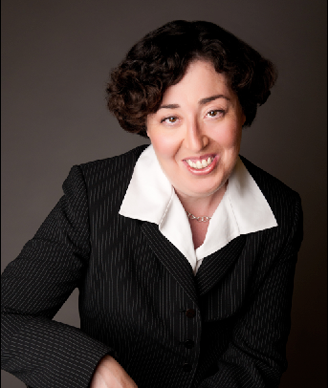Breast Cancer Progress Is a Team Effort: See You in San Antonio
Meetings like SABCS that bring together scientists, medical professionals, and patients are essential to achieving improved outcomes in the clinic. I am grateful to all who organize and attend this event and humbled to participate.
Katherine O’Brien

The 2014 San Antonio Breast Cancer Symposium (SABCS) will take place December 9–13, at the Henry B. Gonzalez Convention Center. With more than 7,500 participants expected from 100 countries, this is the world’s largest breast cancer meeting.
I went to SABCS for the first time in 2013-I was one of 170 patient advocates in attendance. As I joined the throngs of scientists, pathologists, radiologists, surgeons, medical oncologists, geneticists, pharmaceutical representatives, and patient advocates at the opening plenary session, it was all I could to do to restrain myself from jumping up on my chair and yelling, “Hey! Those cures aren’t going to find themselves! Go home and get back to work!”
In my professional life, I cover the printing industry. Having been in my current job for 15 years, I have attended countless trade shows and conferences. I’ve learned that many significant conversations happen in the lobby of the convention center, at food court tables, in the taxi and shuttle bus lines, and, of course, at the hotel bar. Apparently, oncologists and researchers are similar to printers in this regard.
“Science (and particularly medical science) is, to an impressive degree, a social construct,” said George W. Sledge Jr, MD. “Great science is the product of the scientific marketplace, ideas bouncing off each other, being refined through interaction, being judged (literally) by committees of one’s peers. Cancer will likely be cured at the water cooler, not the laboratory, when one researcher approaches another and asks, ‘What are you working on?’”
Meetings like SABCS that bring together scientists, medical professionals, and patients are essential to achieving improved outcomes in the clinic. I am grateful to all who organize and attend this event and humbled to participate.
It is amazing to consider how this meeting has changed since its modest start in 1978, when about 50 people met at a motel near the San Antonio airport for 1 day. For the next few years, SABCS continued as a regional gathering. In 1981, it expanded to a 2-day event and the organizers issued an international call for abstracts.
“Bill McGuire really was the instigator, if you will, of the symposium,” recalled C. Kent Osborne, MD, cofounder of SABCS. “[He] decided that maybe we should [have] a venue for reporting new research results.”
McGuire, who died in 1992 at age 55, is credited as one of the strongest and most influential proponents of translational research. “SABCS always carried his vision, which to a significant degree, has to do with how we carry things from the bench to the bedside,” said Sledge, recipient of the 2010 William L. McGuire Memorial Lecture Award. “Bill was the original translational researcher before that was even a buzzword.”
Sledge, who received his training in breast cancer at the University of Texas at San Antonio, credits McGuire with teaching him biology’s role in the disease. “At a time when the field was concentrating on delivering ever-higher doses of ever-more complicated chemotherapy regimens, Bill taught me the importance of biology in breast cancer,” Sledge recalled. “Biology was destiny for breast cancer patients, and changing their destiny involved first understanding and then altering breast cancer biology. It is a common view today, but at the time it was a new way of looking at breast cancer therapy.”
Although McGuire didn’t live to see the rise of the genomic era, Sledge believes he would have been uniquely positioned to advance it. McGuire’s innate love of numbers, as well as his collaborations with biostatistician Gary M. Clark, PhD, have made him an ideal candidate to tackle the mathematical analyses of large and complex gene array datasets in breast cancer.
Sledge further noted that McGuire surrounded himself with smart people, such as Osborne, Charles A. Coltman Jr, MD, FASCO, and Daniel Von Hoff, MD, FACP.
In 1996, Osborne and Coltman teamed with the Alamo Breast Cancer Foundation (ABCF) to create a patient advocate program.
For the past 17 years, ABCF has conducted its Hot Topics Mentor Sessions at SABCS. Held on 3 consecutive evenings, these sessions feature expert speakers and panelists who review and explain the most compelling presentations. The ABCF evening sessions are like CliffsNotes for non-oncologists-perfect for an English major like me.
The fundamental goal of translational research is to bring basic lab research to patients as quickly as possible. As a metastatic breast cancer patient and SABCS attendee, I look forward to doing my part.